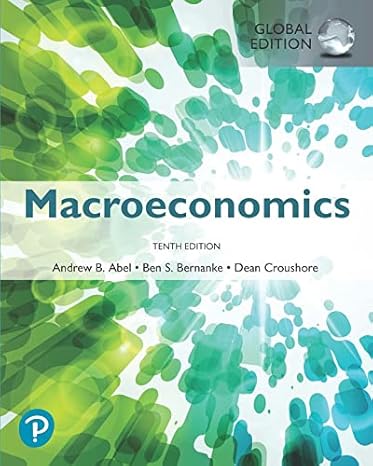6. Suppose that the production function is Y = 9K0.5N0.5. With this production function, the marginal product
Question:
6. Suppose that the production function is Y = 9K0.5N0.5.
With this production function, the marginal product of labor is MPN = 4.5K0.5N-0.5. The capital stock is K = 25.
The labor supply curve is NS = 1003(1 - t)w42, where w is the real wage rate, t is the tax rate on labor income, and hence (1 - t)w is the after-tax real wage rate.
a. Assume that the tax rate on labor income, t, equals zero. Find the equation of the labor demand curve.
Calculate the equilibrium levels of the real wage and employment, the level of full-employment output, and the total after-tax wage income of workers.
b. Repeat part
(a) under the assumption that the tax rate on labor income, t, equals 0.6.
c. Suppose that a minimum wage of w = 2 is imposed.
If the tax rate on labor income, t, equals zero, what are the resulting values of employment and the real wage? Does the introduction of the minimum wage increase the total income of workers, taken as a group?
Step by Step Answer:

Macroeconomics Global Edition
ISBN: 978-1292318615
10th Edition
Authors: Andrew Abel ,Ben Bernanke ,Dean Croushore






